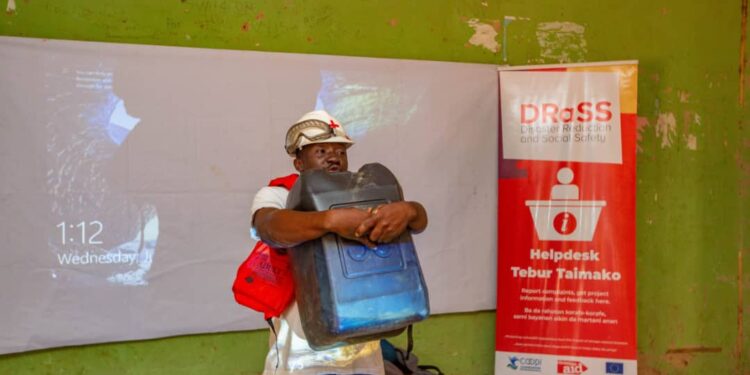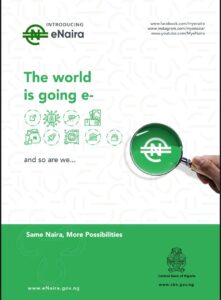By Aondowase Agabi
As the flood alerts from the weather stations of the Nigeria Meteorological Agency (NiMet) keep beeping, proactive communities in Zaria, Kaduna have begun drilling on possible emergency response capabilities.
The evacuation response simulation was facilitated by Christian Aid in consortium with COOPI rolled out the Disaster Response and Social Safety, DRaSS project .
It is aimed to train the community members on local response techniques, mitigating the effect of flooding and providing safety materials for disaster reduction in Kaduna and Sokoto states.
The exercise held at the at the Wucicciri and Magume communities of Zaria local government in kaduna state.
various local strategies and emergency response techniques were adopted using locally base resources during a Simulation exercise.
The trainer Mr. Sunday Awulu from the Red Cross Nigeria who led the communities on flood rescue strategy demonstrated how local tools can be used including calabash, rope, sticks and mat to construct a local stretcher and canoe to evacuate vulnerable people during flood disaster.
He also sensitized them on first aid treatments to victims of the natural disaster before accessing medical facility adequate attention.
Speaking at the end of the Simulation exercise, the Programme Officer: Disaster Risk Reduction Christian Aid UK in Nigeria, Mr. Chinedu Nwakor said the exercise was conducted concurrently in both Kaduna and Sokoto states with the view of increasing community knowledge and capacity in disaster preparedness, prevention, protection, mitigation, response and recovery from flooding disaster risk.
He explained that the DRaSS project which is funded by the European Civil Protection and Humanitarian Aid Operation Union in Humanitarian Aid has the overall objective of improving Early Warning Systems and Social Safety Net for rapid disaster response in North-West Nigeria, with focus to Kaduna and Sokoto States.
Some participants interviewed at the Simulation exercise in both Wucicciri and Magume expressed delight on the DRaSS project for equipping them with versatile knowledge on ways to response to disaster.










